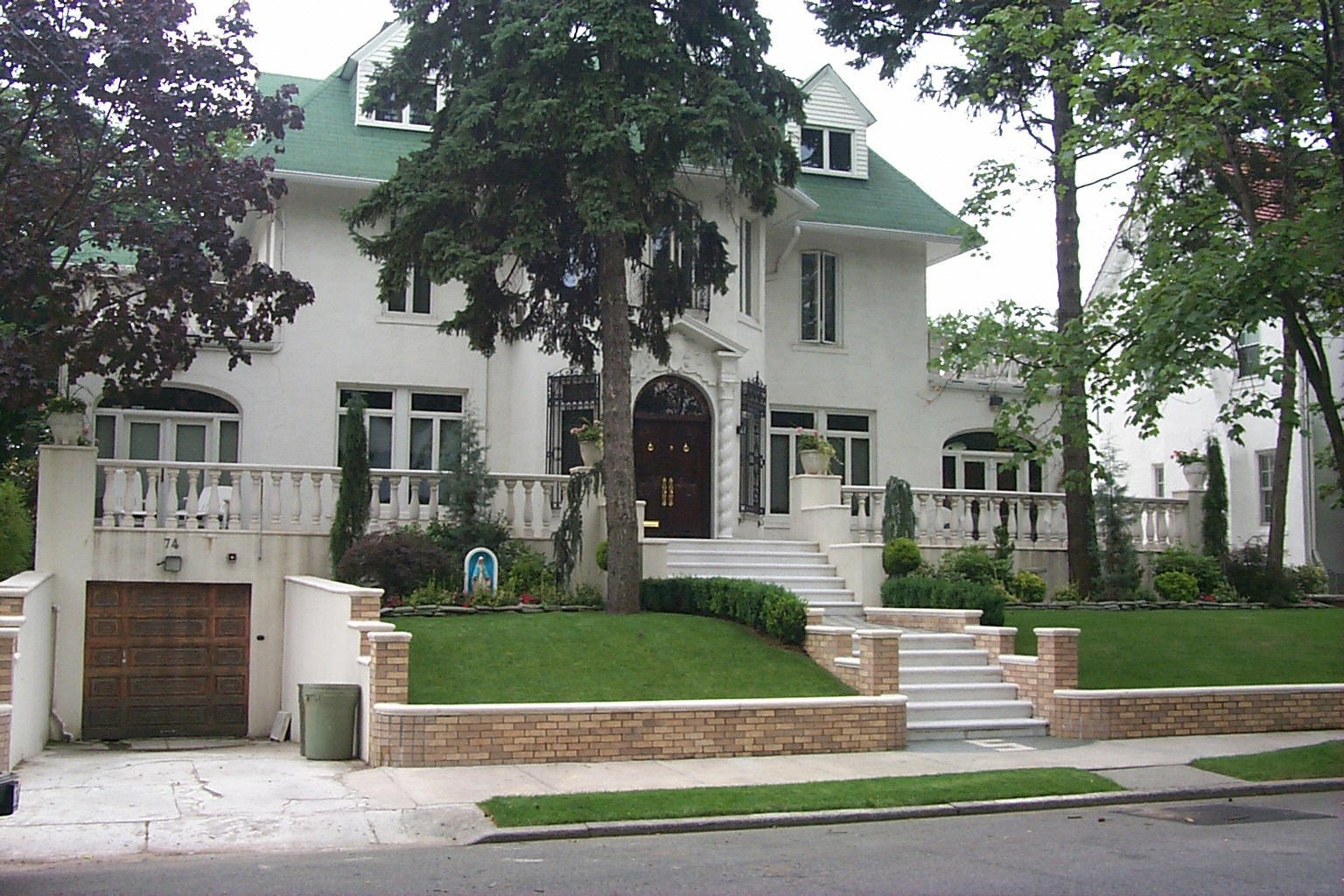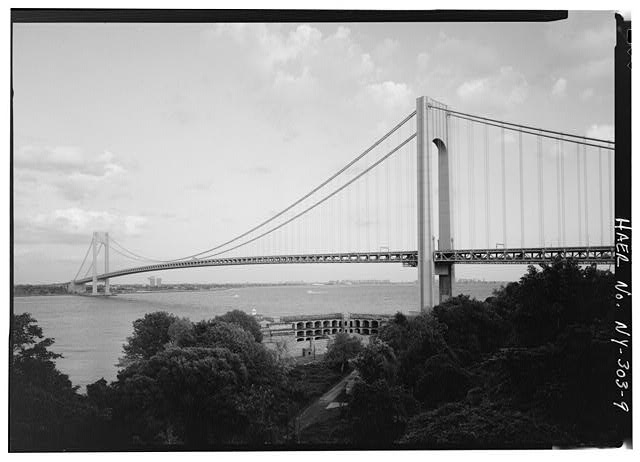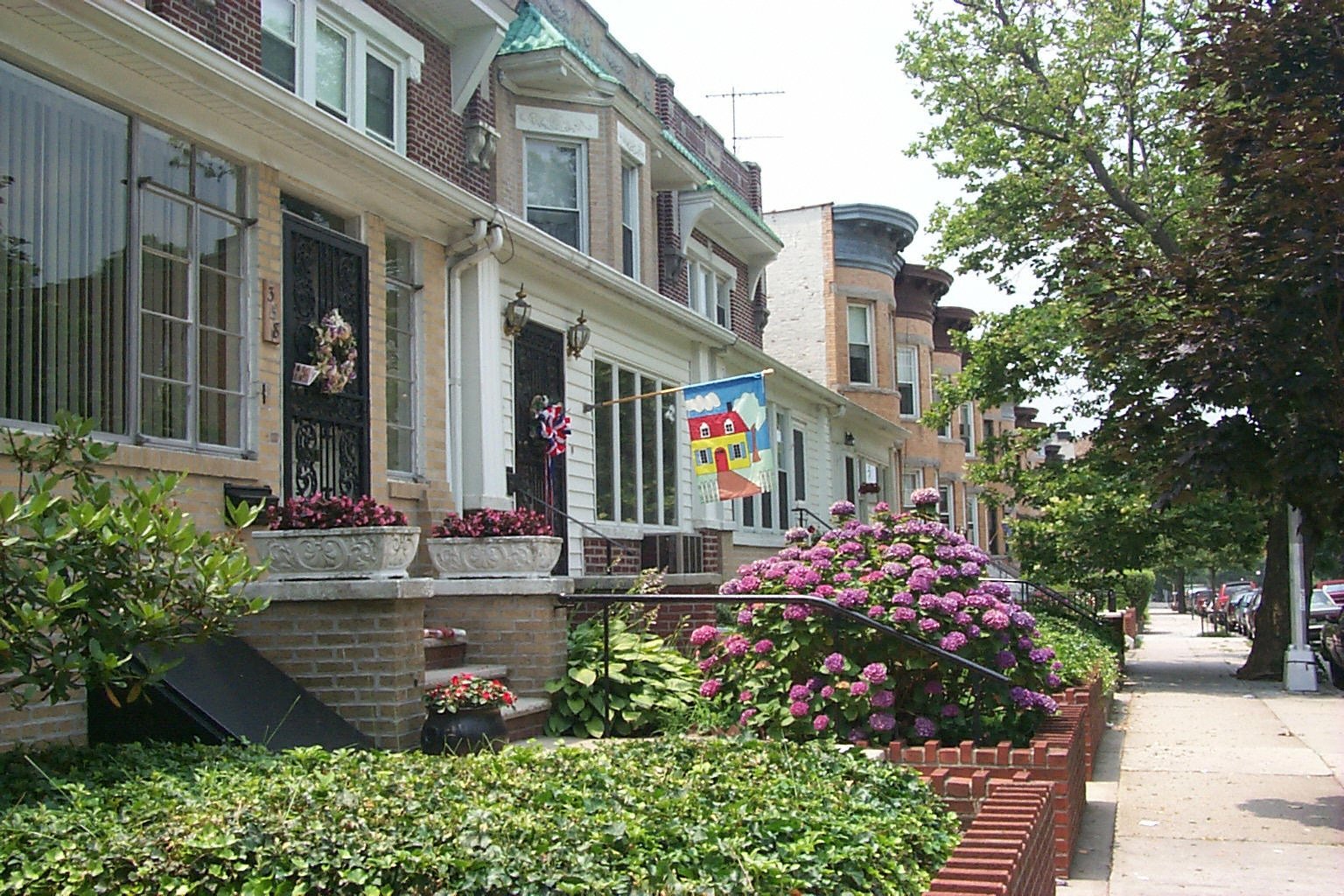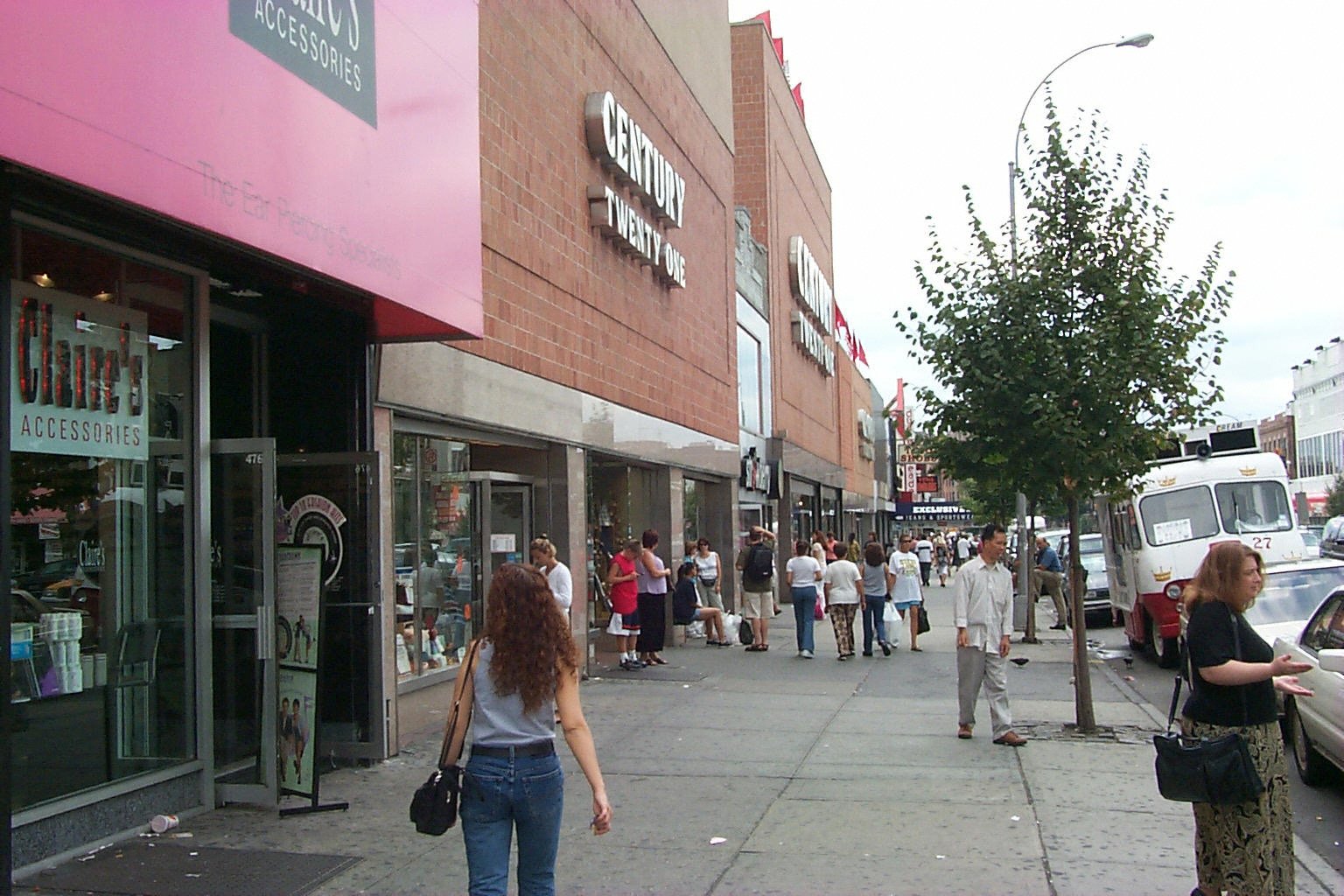Established as a town in 1662,
New Utrecht includes today's communities of Bay Ridge, Fort Hamilton, Dyker Heights,
Borough Park, Bath Beach and most of Bensonhurst. In 1853, Bay Ridge was named for
its two main features: upper New York Bay and the glacial ridge running along Ridge
Boulevard. With its high ground overlooking the Narrows and Gravesend Bay, this land
became very valuable for early developers.
After the consolidation with
the City Of Brooklyn in 1894 and Greater New York in 1898, the wealthy rushed to these
golden shores to build extravagant homes and summer mansions. Members of elite
society gathered at the Crescent Athletic Club (now Ft. Hamilton High School), many
arriving by boat from Manhattan.

# 2579 Trolley on 65th St
between 2nd and 3rd Aves. 4/6/40
With the arrival of the Fourth
Avenue subway line in 1915, many mansions were destroyed (except for Fontbone Hall Academy
at 9901 Shore Road-now a private girl's school) and replaced by high-rise apartment
buildings. A few still remain between 80th and 83th Streets on the crest of the
Ridge. The Gingerbread House at 82nd Street and Narrows Avenue still boasts the
unique style of yore, with its Black Forest Art Nouveau architecture and simulated thatch
roof.

A large home in
Bay Ridge
The majority of the
residential styles are one- and - two family brick, brownstone or limestone frame
houses. The Bay Ridge Special Zoning District was established in 1978 to maintain
housing construction at three stories or less on residential streets, and no greater than
eight stories on the avenues.
During the nineteenth and early-twentieth centuries, many Norwegian and Danish sailors
emigrated to Brooklyn. Nordic heritage is still apparent in some sections of Bay
Ridge. Bay Ridge High School was the only New York City public school to offer
Norwegian as a second language. The area also publishes a Norwegian weekly Nordisk
Tidence, and many churches still hold services in Norwegian. Annually, the
Constitution Day Parade features thousands of people in folk dress who parade along Fifth
Avenues, ending in Leif Ericson Park where "Miss Norway" is crowned at the
statue of Ericson donated by the Prince of Norway in 1939.
The community has since expanded to include newer Irish, Greek, Asian and Middle Eastern
residents. This variety engenders a host eating opportunities for both local
residents and visitors. In addition, the residents have joined together to form the
Bay Ridge Community Council that includes PTAs, civic, trade, and block associations
working together to maintain a strong neighborhood feeling.
Dyker Heights, near Fort Hamilton Parkway, has attracted several generations of Italian
immigrants to its one and two family houses. This area now includes popular Dyker
Park with athletic fields and tennis courts, and the city-owned Dyker Beach Golf
Course.
The imposing Verrazano Narrows Bridge that joins Staten Island and Brooklyn was opened in
1964 as a memorial to Giovanni de Verrazano, who explored the entrance to New York Harbor
in 1524. At its completion, the Bridge was the world's longest suspension bridge.
Supplementing Leif Ericson Park is Owl's Head Park, a perfect picnic spot overlooking the
harbor, and Shore Road Park, a two-and-a-half mile park running between the Belt Parkway
and the Narrows, from the Verrazano Bridge to the 69th Street Pier. This is a
favorite spot for runners, bikers and strollers who want to get a breathtaking view of New
York Harbor.
![]()




